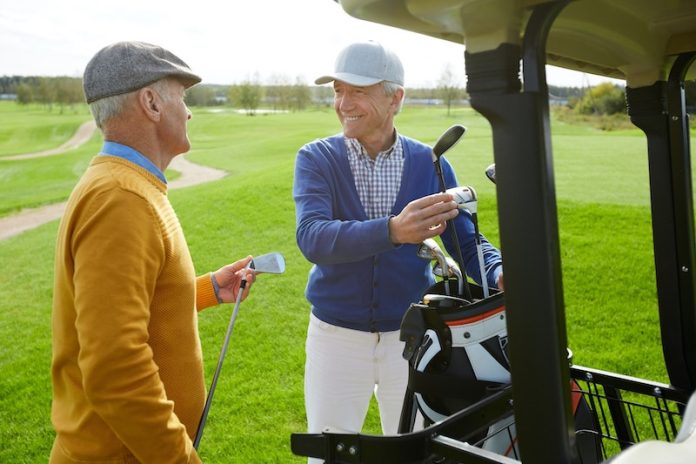
A recent study published in BMJ Open Sport & Exercise Medicine has found that engaging in a single round of golf or completing a 6 km Nordic walking or regular walking session can significantly enhance immediate cognitive function in older individuals.
This research was conducted by an international team of scientists from the University of Eastern Finland, the University of Edinburgh, and ETH Zürich.
It aimed to explore the immediate effects of various cognitively demanding aerobic exercises on cognition and related biological responses in healthy older adults.
The study involved 25 healthy older adults aged 65 and above who engaged in three distinct acute bouts of aerobic exercise:
- 18-Hole Golf Round: Participants played a full round of golf in a real-life environment.
- 6 km Nordic Walking: Participants completed a 6 km session of Nordic walking.
- 6 km Regular Walking: Participants walked 6 km at a brisk pace.
Cognitive function was assessed using the Trail-Making Test (TMT) A and B, which are widely used tools for evaluating cognitive function in older adults.
TMT-A measures lower cognitive functions like attention and processing speed, while TMT-B evaluates more demanding executive functions, such as task-switching ability.
Blood samples were collected to measure brain-derived neurotrophic factor (BDNF) and cathepsin B (CTSB) levels, both of which are thought to reflect the benefits of exercise on the brain.
Participants also used fitness monitoring devices to record exercise-specific data, including distance, duration, pace, energy expenditure, and steps. Heart rate was monitored using an ECG sensor with a chest strap.
Key Findings
The study revealed that a single session of any of the three exercises—18 holes of golf, 6 km of Nordic walking, or 6 km of regular walking—improved lower cognitive functions as measured by the TMT-A test in older adults.
However, no significant effects were observed on the levels of BDNF and CTSB. Additionally, Nordic walking and regular walking were associated with enhanced executive functions, as indicated by improvements on the TMT-B test.
Prior research has already suggested the potential cognitive benefits of acute bouts of aerobic exercise. Factors like exercise intensity, duration, and type have been shown to influence the extent of cognitive improvement.
The findings of this study emphasize the value of age-appropriate aerobic exercise, such as golf, Nordic walking, and regular walking, in both maintaining and enhancing cognitive function among older adults.
Furthermore, exercise holds promise as a potential strategy for those experiencing cognitive decline.
Julia Kettinen, the first author of the study and a Doctoral Researcher in Sports and Exercise Medicine at the Institute of Biomedicine, University of Eastern Finland, emphasized the importance of these findings, particularly for older adults, in maintaining cognitive function and potentially addressing cognitive decline.
If you care about brain health, please read studies about how the Mediterranean diet could protect your brain health, and Omega-3 fats and carotenoid supplements could improve memory.
For more information about brain health, please see recent studies about antioxidants that could help reduce dementia risk, and higher magnesium intake could help benefit brain health.
The research findings can be found in BMJ Open Sport & Exercise Medicine.
Follow us on Twitter for more articles about this topic.
Copyright © 2023 Knowridge Science Report. All rights reserved.


